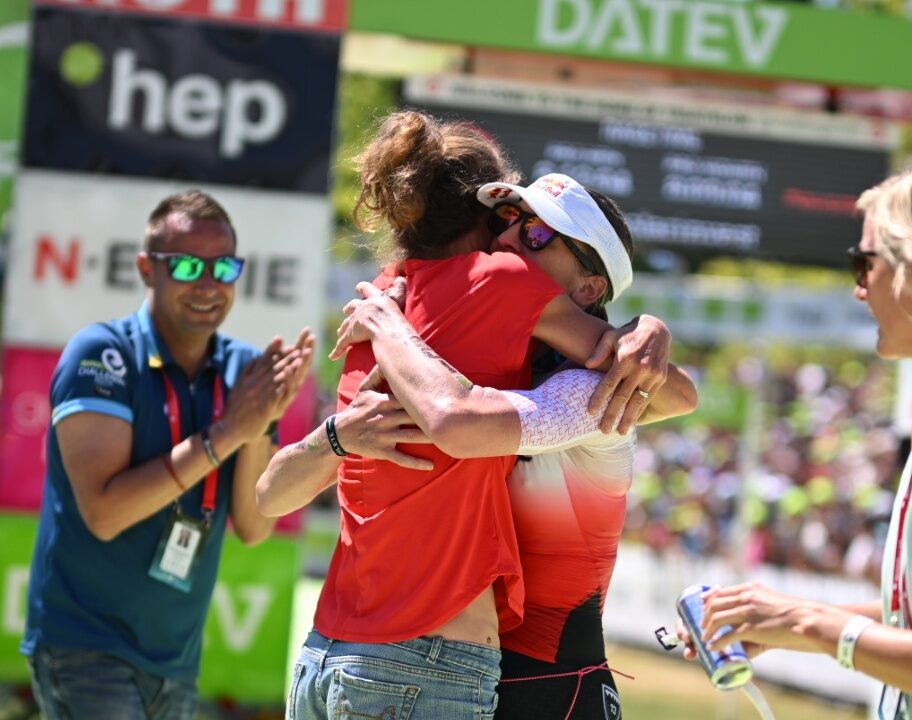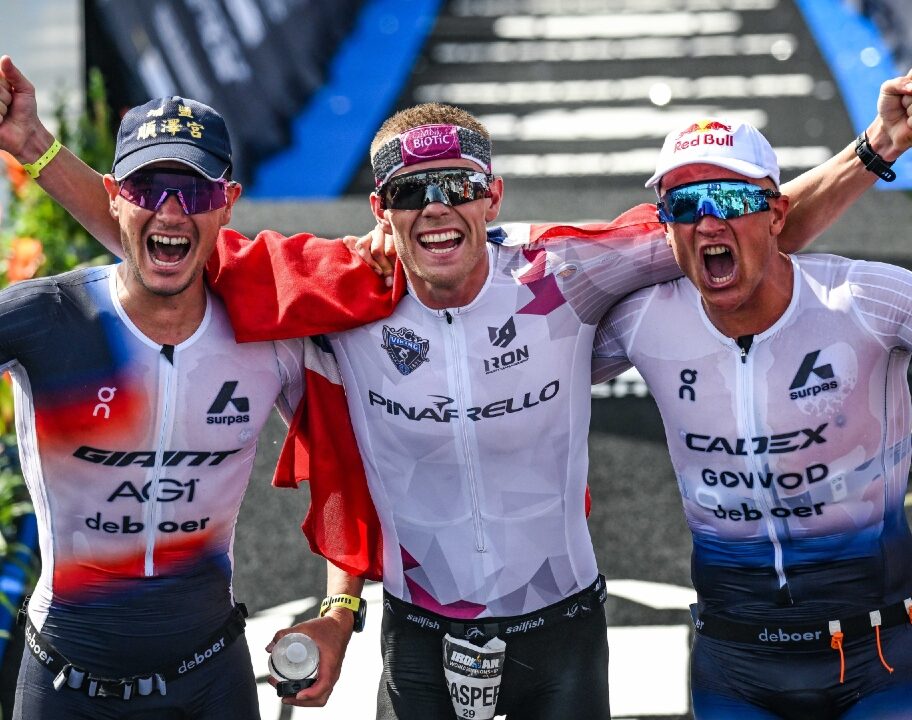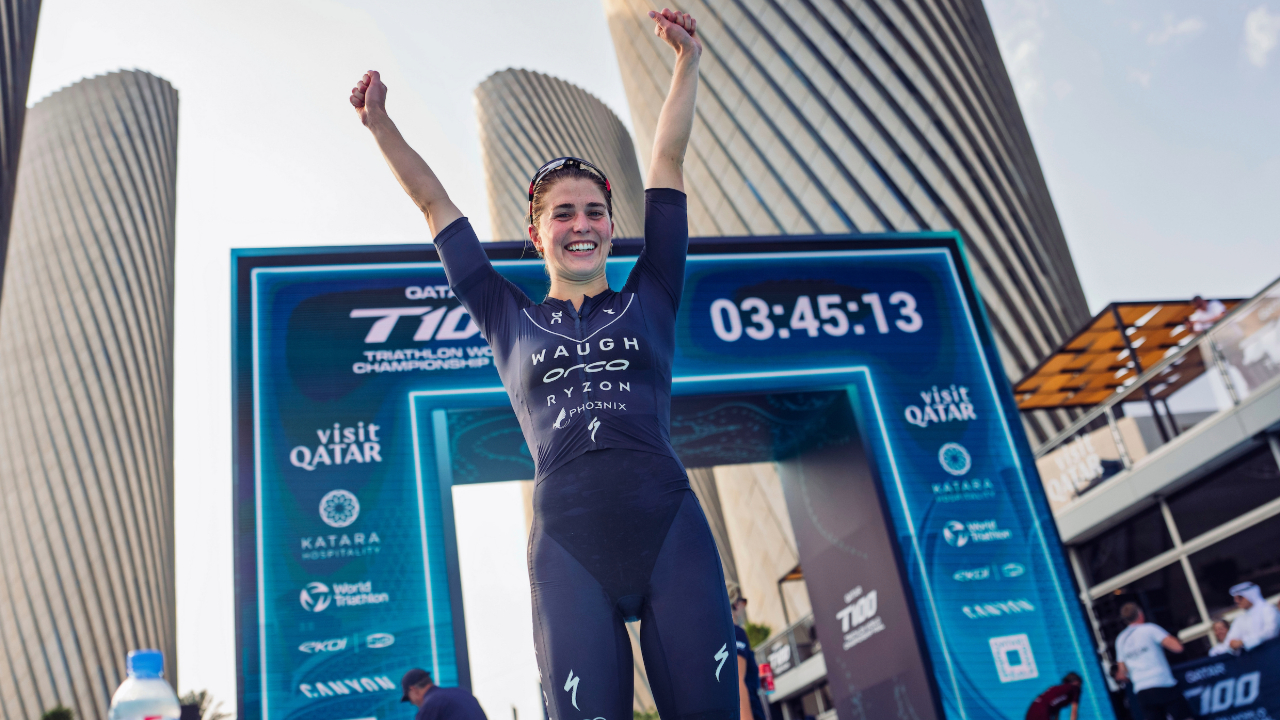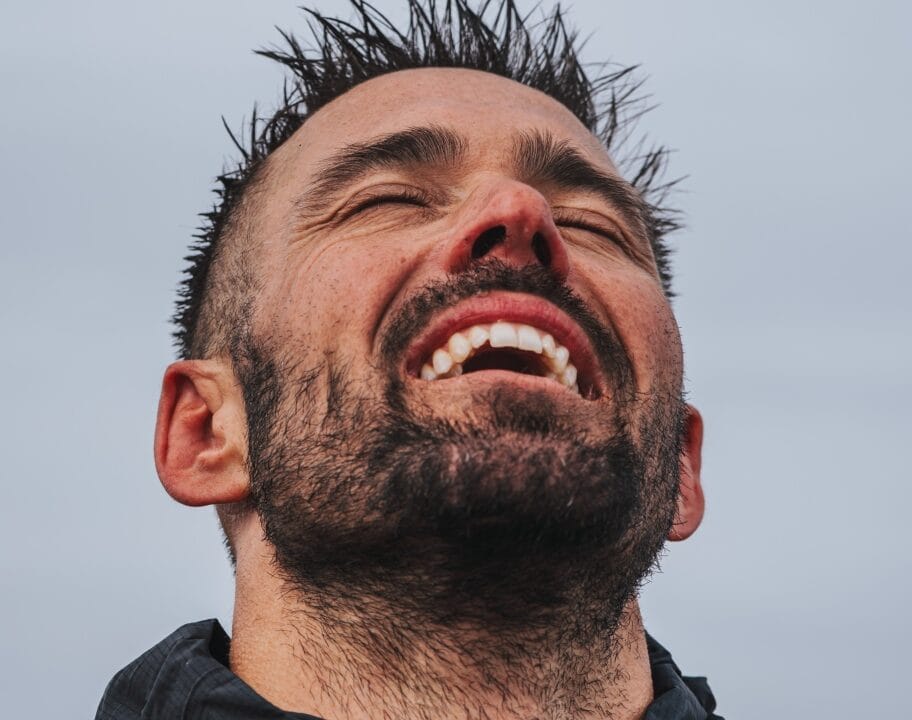Even co-founder Chris McCormack admits it – Super League Triathlon was once seen by many as “a bit of a joke” – but not any more.
The short-form made-for-TV championship had a terrific series of races in 2021, culminating in that race for all the marbles in the iconic setting of Malibu.
The four events provided a number of spectacular moments and finishes, culminating when Alex Yee pipped Marten Van Riel right on the line to claim victory in the overall men’s Championship.
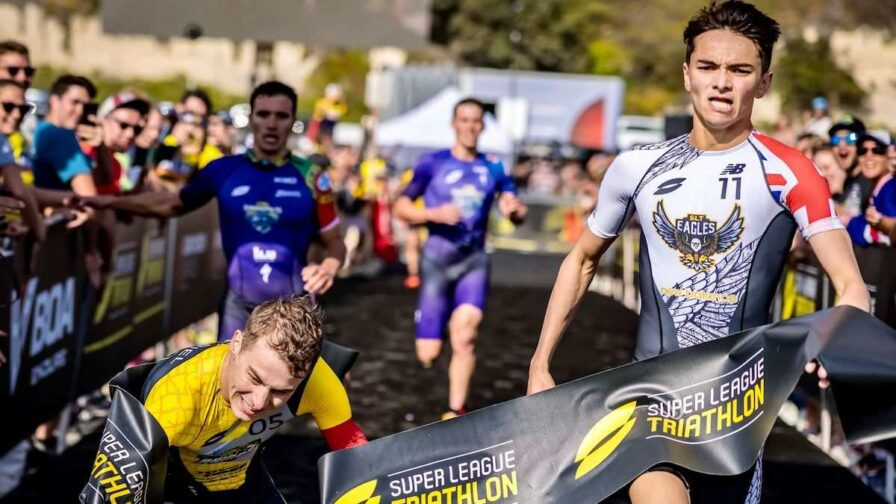
Just taking a group of elite athletes around the world to four major events in the span of a month – during a global pandemic – was no mean feat in itself. Two-time IRONMAN World Champion McCormack outlined the challenges which existed. The result he says was unprecedented success.
McCormack on SLT 2021
He told TRI247: “We were happy to be back racing and to have successfully pivoted during the pandemic. It was a very tough time for sports operators worldwide (as it was for everyone) but the disruption in sport and events in particular was heavy.
“The new COVID protocols and planning made it a tough series to execute, but we are a determined group.
“Working with just the best athletes in the world and building a travel bubble for a month of racing, we did an amazing job. The racing was first-class and we were stoked to get a full racing series off the ground. The feedback has been amazing. The fans love what we do, but it is the broadcasters who have really jumped on board and realised this is triathlon made for spectator consumption.
“Everyone is obsessed with pleasing triathletes, but we built this racing alongside the global sports networks and took on board the feedback from the new age sports that have made it.
“We really looked at surfing and IPL cricket and how they modified existing sports to make them consumable for new media platforms, as well as the way people now behave in consuming sport.
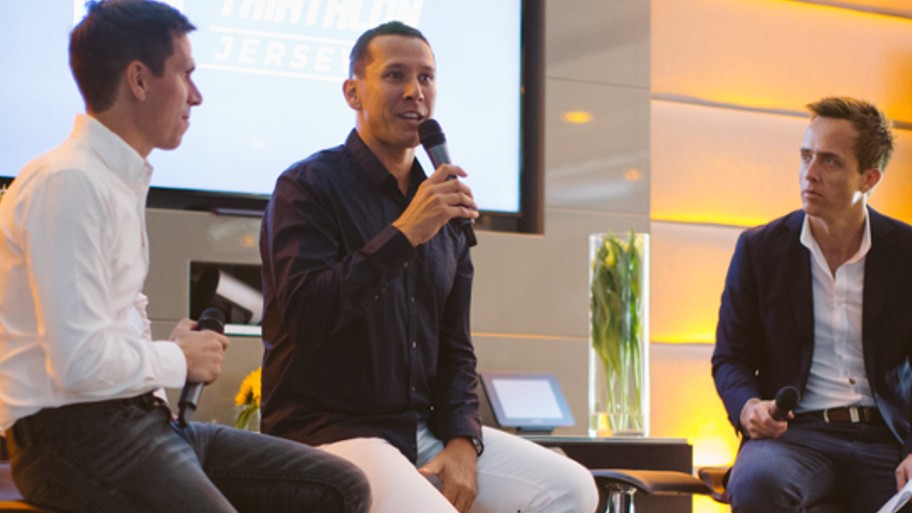
“In that we have been very successful, and this year’s series was the most viewed triathlon series of all time so we are doing something right in that regard.”
Expansion plans for 2022
The next logical steps for SLT in 2022 will see an expanded Championship Series, along with the latest instalment of the Arena Games.
McCormack revealed: “Our aim is to lock out our eight-race series which we would have had if it was not for COVID. Next year we will grow again by a few Championship events and then the Arena Games series also. We just want to expand and continue to add value to our bottom line and feed that back into the product and to the athletes.”
If Super League was initially seen as a gimmick by many – and McCormack openly admits that was the case – the way it is viewed now has come full circle. The brand is here to stay.
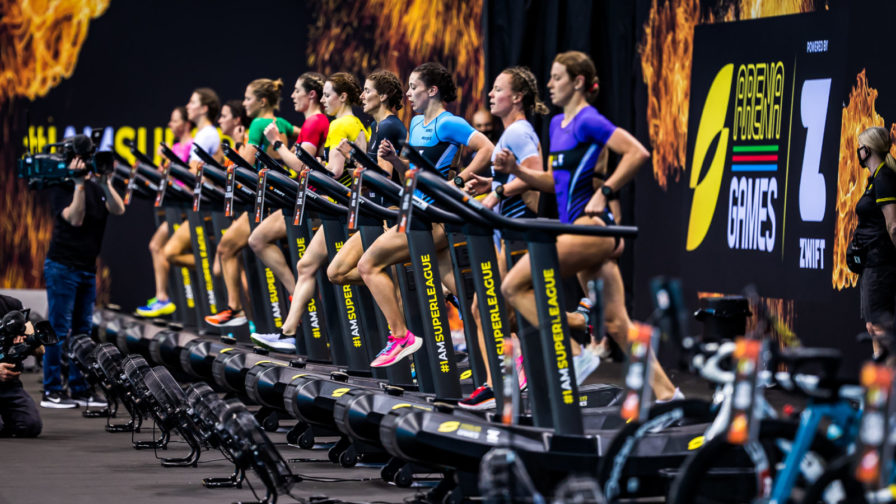
“I think in the beginning everyone sort of took us as a bit of a joke, and now people realise we are not going anywhere.
“We have built a strong product that exists and works fiscally and is continuing to evolve and grow and represent the future of short-course professional racing at a professional level.
“The future of SLT is stable I believe. The athletes now realise the events are incredible and we go about treating them all like professional athletes. Any athlete who has raced SLT will tell you that. We do that part of things right.
“In order for a sport to be professional, the professionals have to feel like professionals. If you treat them like amateurs, your sport will stay that way.
“We changed the culture and the belief of the athletes by treating them as professionals, paying them accordingly and giving them a voice and a seat at the table to help shape the direction of the series we compete in.”
The evolution of Arena Games
Arena Games will go to a new level in 2022, thanks to a recently-announced partnership with World Triathlon. It will have official World Championship status and an esports World Championship Series. McCormack talked about the evolution of the concept.
“We had to pivot after COVID shut down racing. We are not a group that sits on their hands and wonders what to do. We have always been a ‘let’s do this’ type of organisation and have the courage to change tack, make changes and launch something new. We always see opportunity in difficulty, and the Arena Games was that.
“Once lockdowns hit and we knew we had athletes on contract, we discussed what we could do. We did a few bike races on Zwift and broadcast that, and then an internal discussion of having an indoor triathlon series began and then we began to explore the ability to deliver this in an Esports and Live type of format.
“When we tossed the idea around to many people inside the sport they laughed and said that is a dumb idea, but we threw a bunch of resources at it and used it as an opportunity to test the waters in a new space. It was a massive success. I think everyone sat back and watched what we did, and thought, “Wow, that was pretty good.”
“The networks absolutely loved it and wanted more. They really loved the interaction of the esport space with professional sport and the intricate details we went into with matching avatars with racing uniforms and global broadcast.
“Zwift adored it as they saw the opportunity presented with organisations like us delivering digital events that have real substance and merit.
“The feedback from athletes was that this was awesome. Sponsors loved it and saw the huge upside in the ability to use the mega communities to promote the events and the racing, and more so to migrate into a completely new space.
“We jumped on the opportunity and created our structures and our operating IP, and protected what we had built. This led to conversations with the ITU and more so the entire Olympic movement in the understanding that future sport may pivot this way in some capacity and we have the opportunity to work together to give opportunity not only to athletes but the sport also.
“The Arena Games World Championships is a huge step forward for opportunity for young future athletes and this was always at the core of why we started SLT. We wanted to make a real impact on the sport’s future and we push to continue to do that.”
Working together on calendar
While the desire to grow the property is real and wholly understandable, McCormack is at pains to point out that SLT is keen to work with other organisations to ensure the calendar works for all.
He admitted: “The most difficult thing we face is existing within the Olympic programming and working with the ITU and other organisations to not overcrowd the racing space, and continuing to create solid content and storytelling like we did with Vince [Luis] this year in our documentary that creates an interest from others outside our sport.
McCormack’s approach to attacking everything he works on – including SLT – mirrors the way he attacked his racing.
“We just have to be prepared to commit and do it consistently. It’s like preparing for an Ironman. You don’t feel the improvement until you keep doing it day in and day out, and then suddenly you turn up to the race day and everyone comments on how fit you look and you realise all that consistent, no-fuss work was worth it.”







